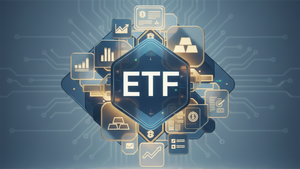Financial News
More News
View More
Nike Beats on Earnings but Struggles in China and Faces Tariffs ↗
December 19, 2025
Is the AI Boom a Bubble? These 2 Dividend Stocks Say No ↗
December 19, 2025
4 High-Potential ETFs for 2026: Small Caps, Space Stocks, and More ↗
December 19, 2025
META Rises Amid Tech Decline, Trump's AI Order Praised By Analyst ↗
December 19, 2025
TL;DR: Why Reddit is the New Growth Stock to Beat ↗
December 19, 2025
Recent Quotes
View More
Stock Quote API & Stock News API supplied by www.cloudquote.io
Quotes delayed at least 20 minutes.
By accessing this page, you agree to the Privacy Policy and Terms Of Service.
Quotes delayed at least 20 minutes.
By accessing this page, you agree to the Privacy Policy and Terms Of Service.
© 2025 FinancialContent. All rights reserved.








